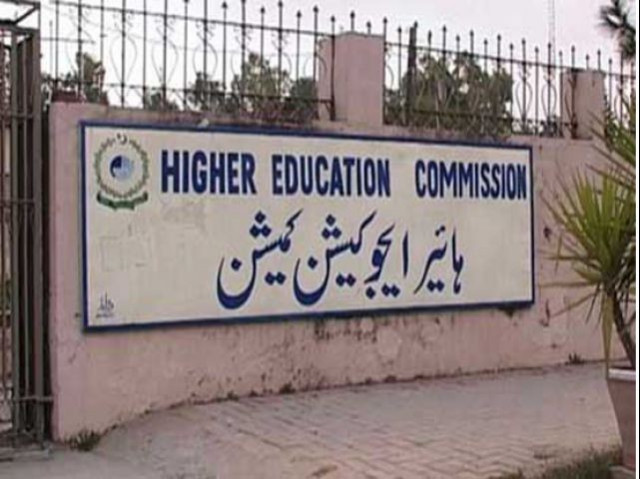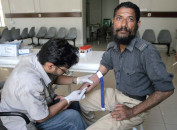CCI turns down proposal to devolve HEC
Officials say federal HEC and provinces will work together for higher education in Pakistan

Officials say federal HEC and provinces will work together for higher education in Pakistan. PHOTO: FILE
After three years of relentless deliberations, the Council of Common Interests (CCI) has turned down the proposal of devolving the Higher Education Commission (HEC) to provinces in view of the 18th Amendment.
The issue that had been ping-ponging between the federal and provincial governments since 2014 has now been settled once and for all after the CCI discussed it threadbare on Monday.
The first attempt to devolve the HEC was made in 2010, but the Supreme Court declared the move as illegal on April 12, 2011. Another such petition is also pending in the Sindh High Court.
Senior officials in the Ministry for Inter Provincial Coordination (IPC) have also confirmed the CCI decision which discussed the contentious issue for about two hours.
“It has been decided that the HEC will not be devolved and now the federal HEC and provinces will work together for higher education,” said a senior official who attended the meeting but wished anonymity.
Minister for IPC Riaz Pirzada also confirmed the CCI decision to The Express Tribune and said the matter would not be brought on the agenda again as the ‘longstanding issue has been resolved’. “The point of devolution of HEC has been dropped and now all stakeholders will work in harmony,” he said.
The official in the IPC said it was, as usual, Sindh which was showing more resistance and was in favour of devolution. Sindh had the most radical stance since the day one that a mechanism for devolution of physical and technical resources along with all the assets of federal HEC must be carried out.
No progress yet: CCI yet to decide on HEC devolution
However, nobody bought that idea as CCI members felt that absence of a higher education body at the centre could have repercussions as an authority was needed for collaborating with international organisations and setting uniform standards inside the country.
“Sindh Chief Minister Murad Ali Shah said if certain key powers remain with the HEC, then the vice chancellors and senior academics do not pay heed to us and they look forward to the centre,” said the official.
Recently the Sindh cabinet passed a controversial law enabling the CM to appoint deans and VCs of public sector universities. Earlier a search committee used to take such decisions and chancellor would have final say over the recommendations.
Minister for planning and development said there was a need to focus on colleges across the country. “They need more focus than any other entity in higher education,” he was quoted as saying.
Khyber-Pakhtunkhwa Chief Minister Pervez Khattak said they were planning to form a provincial higher education council to focus on quality in higher education sector.
The Punjab Higher Education Commission (PHEC) was set up in January 2015, while Sindh opted for an equivalent body in 2013, but both are scrambling to stay put due to bureaucratic, financial and administrative challenges. Balochistan has not yet decided about any such plan.
Sources said the meeting also discussed naming the provincial bodies as Punjab HEC or Sindh HEC as the federal HEC has already become a brand name for Pakistan.
Later the CCI also agreed that quality assurance, criteria for standards in higher education will remain with the federal HEC while monitoring in higher education sector and accreditation of institutions will be carried out by both centre and provinces.
However, once a higher education institute gets its charter approved by the provincial government, it will have to take non-objection certificate from the HEC to continue academic activities. The CCI also sought to increase the representation of provinces in the governing body of the HEC.
The HEC chairperson Dr Mukhtar Ahmed said he could not comment on the development, adding that the actual situation would emerge once the provinces made changes to relevant laws.



















COMMENTS
Comments are moderated and generally will be posted if they are on-topic and not abusive.
For more information, please see our Comments FAQ